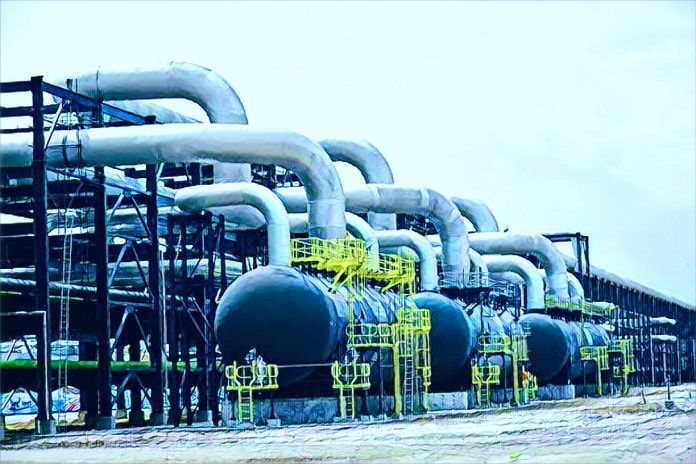KEY POINTS
- Dangote refinery could add billions to Nigeria’s economy by 2030.
- Nigeria’s trade balance may improve with reduced fuel imports.
- Thousands of new jobs expected if the refinery becomes fully operational.
The multibillion-dollar Dangote refinery is expected to boost Nigeria’s economy to $484.15 billion over the next six years if it functions optimally, according to a new report by Analysts Data Services and Resources (ADSR) Limited.
Dangote refinery poised to lift Nigeria’s GDP by 2030
The 650,000-barrel-per-day facility is projected to raise Nigeria’s gross domestic product (GDP) growth from 4.15% by the end of 2024 to 6.21% by 2030.
“Without Dangote refinery, Nigeria’s GDP growth would be expected to be 3.34% in 2024 and rise to 4.13% in 2030. But with Dangote refinery, it is projected to record 4.15% in 2024 and rise to 6.21% in 2030,” Afolabi Olowookere, managing director and chief economist at ADSR, said.
“The refinery will positively and significantly impact the economy,” Olowookere added.
Nigeria, once Africa’s biggest economy, is projected to drop to fourth in the rankings following the two-time devaluation of its currency. The country’s GDP is expected to slow to $253 billion by the end of this year, according to the International Monetary Fund. However, the $20 billion facility, built by Africa’s richest man, Aliko Dangote, could help stabilize Nigeria’s economy by providing a much-needed supply of refined products.
Potential job creation and economic stability from reduced import needs
“With reduced imports and the potential for exporting surplus refined products from the Dangote refinery, Nigeria’s trade balance is expected to improve,” ADSR said. “This would contribute positively to GDP growth and economic stability.”
According to a report by BusinessDay, Olayemi Cardoso, the governor of Nigeria’s central bank, said recently that lifting petroleum products from the Dangote refinery will ease pressure on the economy and reduce demand for foreign exchange, which in turn could help stabilize the naira’s exchange rate.
The report also suggested that the refinery could create thousands of job opportunities if it becomes fully operational by 2025, thereby reducing Nigeria’s unemployment rate and contributing to overall growth. While the Dangote refinery is expected to significantly decrease Nigeria’s reliance on imported refined products, factors like capacity limitations, market dynamics, and government policies may still require continued importation and subsidy payments in the short to medium term.



